Search Results
Showing results 641 to 660 of 1297

Play Dough Moon Phases
Source Institutions
In this activity, young learners will learn about moon phases using materials found at home. This activity is adapted using play dough and cups to avoid food allergens and waste.
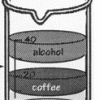
Layers of Liquids
Source Institutions
Learners pour equal amounts of coffee, mineral oil, corn syrup, and alcohol into a beaker. The liquids resolve into stacked layers, and learners can infer which liquids are the most and least dense.
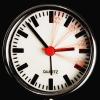
I Can't Take the Pressure!
Learners develop an understanding of air pressure in two different activities.

What's Hiding in the Air?: Rubber Band Air Test
Learners build devices from rubber bands to test for invisible air pollutants.
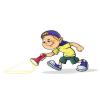
Changing Colors
Source Institutions
In this activity, learners will explore how different colors of lights interact with objects around them. Will a blue object stay blue with a red filter?
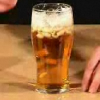
Lager Lamp
Source Institutions
In this demonstration, adult learners create a lava lamp using beer and nuts! Use this pub-themed activity to demonstrate the effects of buoyancy and bubbles.

Use Clues to Solve an Ice Mystery
Source Institutions
Learners explore the variables that affect the properties of ice and the places where different types of ice are found.
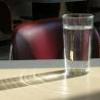
Bent Toward Science: Refraction
Source Institutions
This is an activity about the behavior of light. Using simple, everyday objects, learners will discover that light moves in straight lines until acted upon by another object.
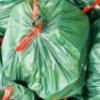
Recycling Rules: Understanding Recycling and a MRF
Source Institutions
In this activity, learners simulate the separation techniques that materials recovery facilities (MRFs) use and then design their own series of recycling techniques.
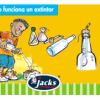
Como funciona un extintor
Source Institutions
In this Spanish-language chemistry activity, learners use simple materials to explore how fire extinguishers work to put out fires.
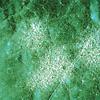
Powdery Mildew Fungi: Classification and Ecology
Source Institutions
In this laboratory exercise, learners will discover how many different plant hosts they can find that are infected by the same genus of a powdery mildew fungus, or how many different genera of powdery

Soda Geyser
Source Institutions
In this quick activity (page 1 of PDF under SciGirls Activity: Lift Off), learners will use the ever-popular soda geyser experiment to test the reactivity of the various sugar candies or mints.
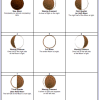
Oreo Phases
Source Institutions
In this activity, learners recreate the lunar phases using the frosting from Oreo® cookies and place the phases in order. Round cream cheese crackers can also be used if cookies are not an option.

Recycling Paper
Source Institutions
In this crafty chemistry activity (on page 2 of the PDF), learners make their own paper from used paper they may have otherwise thrown away.
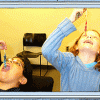
Grow Rock Candy
Source Institutions
Learners grow sugar crystals (rock candy). They make a hot solution that has an excess of sugar dissolved in it, then as the solution cools, they see sugar crystals form.

Witches' Potion Demonstration
Source Institutions
In this chemistry demonstration, learners will discover that phenolphthalein is an acid/base indicator. One learner will read a poem about four witches making a potion.
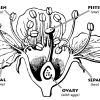
In Search of Pollen
Source Institutions
In this activity (on pages 9-14), learners dissect a real flower -- the kind of work botanists do.
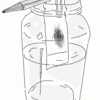
Show Your Colors!
Source Institutions
In this family or group activity, learners conduct a chromatography experiment to reveal the colors that leaves "hide" under their green pigments.
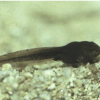
Life Story
Source Institutions
In this two-part activity, learners compare and contrast a variety of life cycles to better understand different organisms and how they develop.

Downhill Race
Source Institutions
In this activity, learners explore how two cylinders that look the same may roll down a ramp at different rates.
